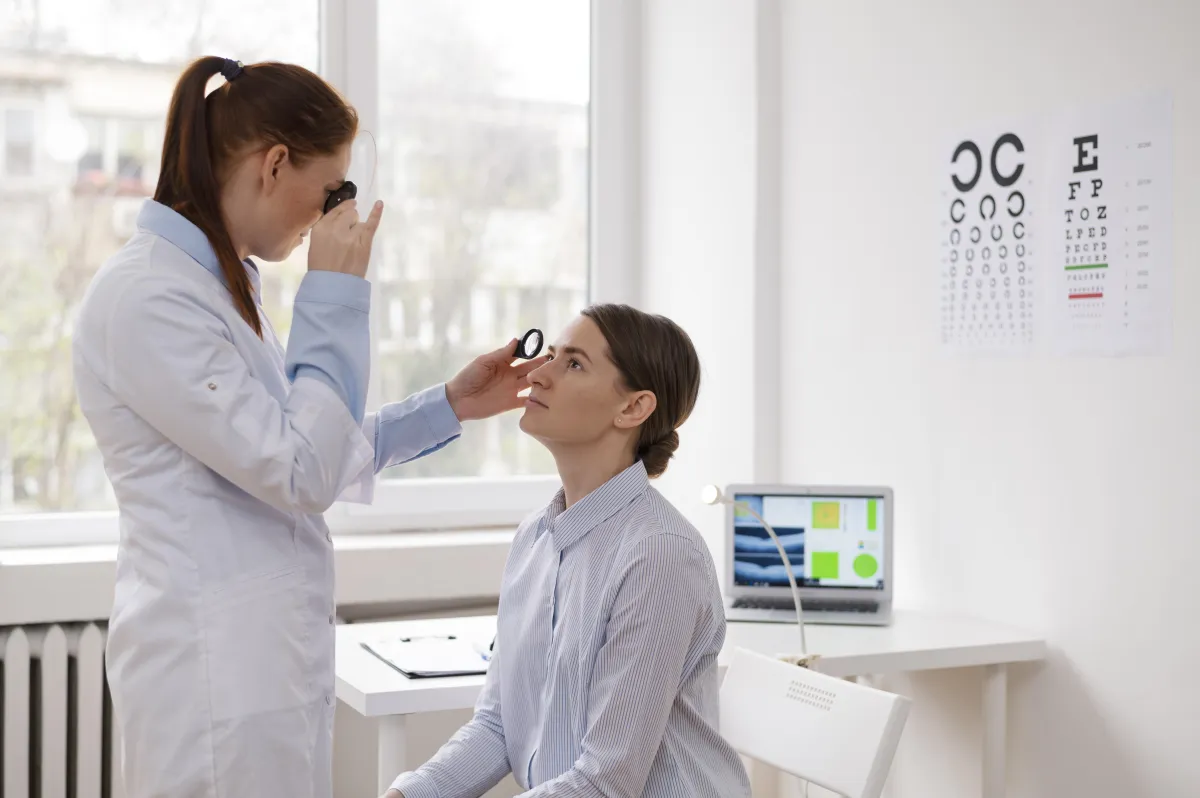Pink eye (conjunctivitis) treatment
Ages 18-64
FSA or HSA eligible
When you need it, get treatment for pink eye (conjunctivitis) from an online physician or NP. With Optum Clinic, you can receive virtual treatment on your timetable from reputable telehealth providers at a fixed cost with no unexpected charges. Pay a fixed price; visits with insurance are not accepted. Fill your prescription at a preferred pharmacy if you are prescribed medication for pink eye. If you have health insurance, it might pay for the cost of the prescription drugs you take.

Quickly receive virtual care from a licenced clinician without making an appointment
Respond to a few health inquiries and make contact with a physician.
Any prescribed medication can be delivered or picked up at the pharmacy of your choice.
A fixed visitation fee is required; insurance is not accepted.
Both our policies and the law secure and protect your health data.
Common pink eye medications
Based on your symptoms and medical history, your clinician will decide which (if any) pink eye treatment is medically necessary for you. If you have a prescription, pick it up from the pharmacy of your choosing. If you have health insurance, it might pay for the cost of the prescription drugs you take.
Erythromycin
Antibiotic eye ointment
Ciprofloxacin
Antibiotic eye drops
Complete the intake form.
Speak with a clinician without making an appointment.
Obtain a customised treatment strategy
It's important that you understand
Your clinician can suggest that you see a healthcare professional in person based on the information they have about your health. You won't be billed for your visit if that occurs. At present time, Optum Health Clinic is not intended for users of government payor programs, such as Medicare and Medicaid, and does not accept insurance.
Frequently Asked Questions
Do I need to receive this treatment?
If you need treatment for yourself and are over the age of 18, this visit might be appropriate for you.
• You don't have any changes in your vision, such as light sensitivity or blurriness.
• The area surrounding your eyes is pain-free.
• There hasn't been any recent damage to your eyes or chemical exposure
• Your eye symptoms started less than 14 days ago.
• You are not pregnant.
Can I get my child treated for pink eye with this service?
No. We acknowledge that conjunctivitis, or pink eye, can be extremely contagious and can spread across households; but, at this time, Optum Health Clinic is only able to treat adults (between the ages of 18 and 64). Your child (under 18) must see a pediatrician if they have pink eye symptoms.
Is it contagious to get pink eye?
Either infectious or noninfectious pink eye can occur. It is possible for someone else to contract pink eye from you, whether it is viral or bacterial. You are not contagious if you have allergic pink eye.
Avoid sharing tissues, towels, pillowcases, or any other personal objects, and wash your hands frequently to help stop the spread of a bacterial or viral pink eye infection.
What type of pink eye do I have, and how can I tell?
Your eye symptoms can help determine what kind of conjunctivitis you have:
• Allergic conjunctivitis: Redness, itchiness, and watery discharge in both eyes
• Bacterial conjunctivitis: Redness and thick discharge, usually in one eye
• Viral conjunctivitis: Redness, a gritty or sandy sensation, and watery discharge in one eye, usually followed by the other eye within 2 days. Viral pink eye is often preceded by mild cold or flu symptoms from a common adenovirus. Most adult cases of conjunctivitis are viral.
It's important for a clinician to know what's causing your pink eye so they can prescribe the right conjunctivitis treatment and provide symptom relief.
What other illnesses can result in red or pink eyes?
Red or pink eyes can be caused by a number of disorders, though conjunctivitis (inflammation of the conjunctiva) is the most prevalent cause. These conditions include the following:
• Blepharitis, when your eyelids are irritated and inflamed*
• Stye (hordeolum), when you have a painful lump on the eyelid*
• Subconjunctival hemorrhage, when a strain like a violent sneeze causes broken blood vessels in the eye
• Corneal abrasion, when the surface of the cornea experiences a trauma like a scratch
• Contact lens overwear, which can cause dryness or abrasions
It is imperative that you seek immediate medical attention from a reliable healthcare provider, such as an opthalmologist or urgent care clinician, for an in-person evaluation if you feel like you have something foreign in your eye, can't keep your eyes open, have had recent trauma to your eyes, have changes in your vision, develop light sensitivity, or are experiencing severe pain in your eyes.
Can I pay for a visit or prescription drugs with my health insurance?
At this time, Optum Clinic Clinic does not accept health insurance for visits. You can submit a claim to your insurance provider for reimbursement, but we can’t guarantee they’ll reimburse you. If you typically pay for your prescription drugs with insurance, you can do the same with those that are prescribed by Optum Clinic. The cost of medication isn’t included in the cost of your visit.
How does Optum Clinic protect my health information?
Optum Clinic protects your health information by strictly following the requirements of the Health Insurance Portability and Accountability Act (HIPAA). HIPAA governs what Optum Clinic and your healthcare providers can do with your medical information, as well as your contact and payment information. Optum Clinic doesn’t and will never sell your personal information. Learn more on our privacy page.
